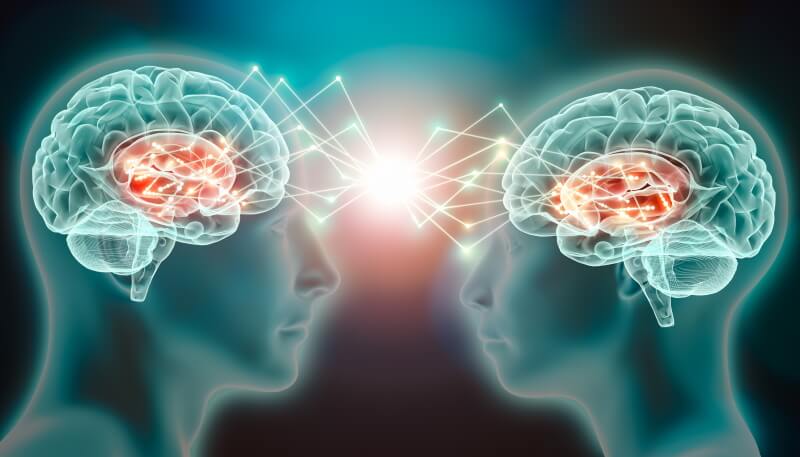The study of abnormal (para-) cognitive behavior is known as parapsychology (psychology). The term “paranormal” denotes something that is not normal and is typically used to describe experiences that cannot be explained by principles that are now known. They include the movement of actual objects and psychic or mediumistic access to information (psi functioning) (psychokinesis). Other paranormal events include reincarnation, near-death and out-of-body experiences, and healing intentions.
The study of interactions between living things and their surroundings that appear to defy accepted physical rules of nature is known as parapsychology. A part of the larger study of consciousness and the mind is parapsychology. As one of the most controversial and criticized branches within the diverse field, parapsychology involves the study of interactions that transcend the physical laws of nature. If you or your spouse wants to learn more about parapsychology, seek Online Marriage Counselling at TalktoAngel.
What Is the History of Parapsychology?
In the past, parapsychology wasn’t as specialized as it is now. There is a history of mysterious mental phenomena in all cultures. Folklore and myth served to give people a foundation for believing in these phenomena before there was a branch of science. However, as the scientific method gained acceptance in disciplines like chemistry and biology, many early psychologists believed that it would also aid in their understanding of parapsychological occurrences. When the Society for Psychical Research was established in London in 1882, Lord Rayleigh and William James were among its many prominent members. James introduced the group to the country, and major institutions like Duke and Stanford started serious research into extrasensory perception.
Even the government became engaged by the 1950s, with the CIA supporting the Stargate Project to study the collection of intelligence using paranormal means. No parapsychological researcher was able to produce enough supporting data to persuade other scientists that any of the experiences were real, despite the funding and attention given to the topic.
Parapsychologists study 5 broad areas:
Telepathy –
The ability to communicate between human minds without using any other currently recognized routes of communication is known as telepathy. Parapsychologists continue to look into the phenomenon using controlled, remote experimental research and statistical analysis, despite the fact that they have not been able to find any conclusive scientific evidence for it. They also consider the effects of several mental illnesses that could make people think they possess telepathy even when they do not, like thinking broadcasting or having undergone thought insertion or removal.
Clairvoyance or Remote Viewing –
A person’s capacity to obtain information about far-off events that they have no other way of knowing is known as clairvoyance. This branch of parapsychology, unlike telepathy, usually takes the shape of a vision or dream of an event as it has already occurred or will occur instead of involving direct access to another person’s mind. Similar to telepathy studies attempt to demonstrate clairvoyance involving controlled attempts to glimpse situations or events to which the viewer does not normally have access.
Precognition –
Being able to foresee future events before they occur is known as precognition. These events are particularly challenging to study because reliable forecasts require a high level of specificity.
In these studies, parapsychologists contribute rigor and robust criteria that other investigators without a background in science may lack.
Psychokinesis –
While the previous abilities were all solely mental or informational, psychokinesis is using mental abilities to manipulate things or physical systems. It is believed that PK, as it is called in the parapsychology community, is simple to test since precise, carefully controlled tests involving physical movement can be carried out. The goal of parapsychologists is to provide challenging examinations that are doable for those with PK.
Survival Studies –
Studies on survival look at the idea that consciousness might exist in some way after death and could perhaps be reached and spoken to. In developing metrics for how to evaluate and examine events, parapsychologists play a critical role in survival research. There isn’t a definite form of activity or measurement that is universally regarded as evidence of life after death, unlike in some other paranormal domains. Instead, the study of parapsychology examines how consciousness is defined and what it means to be alive. Any of these specialties are open to parapsychologists, as well as highly specialized subspecialties.
What Do Parapsychologists Study?
To assess human talents that are outside the usual range, the majority of parapsychology researchers concentrate on the larger study of consciousness and the mind. In order to find empirically supported research findings that would establish the existence of a spectrum of purported human talents that have never been scientifically supported, parapsychologists typically evaluate these claims.
What typical objections to and responses to parapsychology are there? As a result of popular entertainment and media coverage that is highly unscientific, many individuals believe the subject of parapsychology to be contentious. Contrary to common assumption, parapsychology is not interested in answering strange inquiries about enigmatic occurrences and off-the-wall subjects like astrology, witchcraft, alchemy, vampires, aliens, paganism, or the hunt for Bigfoot.
If you or your partner need more information, feel free to seek Marriage Counselling at TalktoAngel.
Also check – Warning Signs Of Bulimia Nervosa And Healing Methods




March 20, 2024
[…] Also check – Parapsychology: The Science of Unusual Experience […]